
The people of Toronto will head to the polls on Monday to elect a new mayor. As Torontonians decide who they would like to cast their ballot for, Global News has taken a closer look at the top seven polling candidates and the promises they have made for the city.
Olivia Chow
Olivia Chow’s public safety plan focuses on expanding community crisis teams city-wide to improve 9-1-1 wait times.
If elected, Chow said she would make the Toronto Community Crisis Service available to everyone in the city. The service is currently only accessible to around 60 per cent of the city.
Chow’s safety plan would see the establishment of an Emergency Transformation team which would “explore additional ways to improve 9-1-1 response time.” The team would also work to streamline the Toronto Community Crisis service and divert non-emergency calls away from 9-1-1.
Chow’s plan would also see the crisis response teams expanded to cover the Toronto’s transit system and the city’s libraries.
According to her platform, if elected, Chow would also advocate to the provincial government for additional crisis beds in the city, and to expand mental health support services in Toronto.
If elected as mayor, Chow said she would enact her ‘City Homes Plan.”
The plan would see the city act as a developer and build 25,000 rent-controlled homes over eight years. Of those homes, at least 7,500 units would be affordable, with at least 2,500 of them rent-geared-to income units on city-owned land.
Chow has also promised to use CreateTO as a developer and partner with the construction sector to build rental buildings that the city would own, but non-profits would operate.
If elected, Chow said she would leverage the federal government’s national housing strategy, using its programs and increase the City Building Fund by 0.33 per cent.
Chow said she would also see that the city expedites approvals, waives development charges, building permit fees, residential property taxes, parkland dedication fees and additional municipal fees.
She has also promised to create the ‘Secure Affordable Homes Fund’ with $100 million annual spending to stop renovictions by purchasing, repairing and transferring affordable rental apartments to not-for-profit community and Indigenous housing providers as affordable rental homes.
In order to address affordability for renters, Chow said she would double the reach of Toronto’s Rent Bank and triple the reach of the Eviction Prevention in the Community Program for renters facing eviction.
She has also promised to “strengthen investments” into RentSafeTO, and “scale up” the Tenant Support Program to fight eviction and rent increases.
Chow said, if elected, she would also establish the Toronto Renters Action Committee to work on anti-renoviction bylaws, advocate for rent control, review policies and “hold the city accountable.”
If elected, Chow said she would reverse the recent service cuts and “significantly improve transit services to make sure it is fast and reliable.”
Chow has also promised to get cell service for everyone on the TTC.
Chow also plans to restore workers in TTC stations to be the “eyes and ears of the system.”
Chow’s platform also outlines plans to expand transit options in the city, which she says would better serve riders in Scarborough. These plans include an off-road bus rapid transit route to replace the RT. She is also planning to complete the loop in Scarborough with the Eglinton East LRT, if elected.
Josh Matlow
If elected, Josh Matlow said he would establish a $115 million Community Health and Safety fund. According to Matlow, the fund would address “well-known risk factors for criminal behaviour,” including poverty, racism and trauma. The fund, Matlow says, will be funded by stabilizing the Toronto police budget for $1.16 billion for three years.
According to Matlow, the fund would provide services and supports in Toronto, including expanding mental health crisis teams, providing additional and improved shelter beds, mental health and addictions counselling. Matlow says the fund would also create safe spaces for at-risk youth, provide job training, and recreation programming.
Matlow says the fund would expand library access, improve shelters and improve childcare services for unhoused residents, including eviction prevention.
Matlow said he would also work with Toronto’s city auditor general to find efficiencies in the Toronto police.
If elected, Matlow said he would establish a new city agency called “Public Build Toronto” which would build housing at cost on city-owned lands. The fund would be paid for using $300 million in seed funding from the city, and by waiving municipal fees like property taxes and development charges.
As part of Matlow’s affordability plan, he said he would spend $407.6 million to lower the cost of housing, to support homeless residents and create more places to live in neighbourhoods with childcare, schools, infrastructure and parks.
According to Matlow, this would be paid for using the Community Health and Safety Fund and the City Works Fund.
Matlow’s platform also includes supports for renters.
If elected as mayor, Matlow said he would create a Tenant Support program to strengthen protections for renters, and he would increase funding for the city’s Multi-use Residential Acquisition program by $50 million to purchase affordable apartments under threat so they could be run by non-profits or co-ops.
Matlow has also promised to establish rent control in all units that receive city funding and says he would increase funding for paralegals to fight above-guideline rent increases.
If elected, Matlow said he would reverse the TTC cuts and return the system’s service to pre-pandemic levels. Matlow said he would do this by allocating $50 million from the City Works Fund. In following years, Matlow said he would use the new climate action levy to restore service.
As part of his transit and infrastructure plan, Matlow said he would also redesign Toronto’s most dangerous intersections and roads. He said he would do this by increasing the annual traffic safety capital spending to $56 million over two years.
Matlow said if elected he will also launch a transportation network in Scarborough. The network would have over 40 stops and include cycling and walking trails.
Ana Bailao
Ana Bailão has a three-part safety plan which she says would make for a safer transit system, safer streets and a “safer tomorrow.”
When it comes to the TTC, Bailão said, if elected, she would immediately redeploy and hire TTC staff to have more eyes and ears at stations and platforms across the city.
Bailão said she would also put Bell, Rogers and Telus on notice to bring cell service to the TTC and pressure the federal government to compel telcos to do the same.
If elected, Bailão has also promised to increase security camera footage across the TTC and said she would reverse transit cuts to increase cleaning schedules across the stations.
As part of her “safer streets” initiative, Bailão said she would expand the Toronto Community Crisis service to include the entire city.
She said she would also introduce mobile mental health clinics and would work with community health partners in high-priority neighbourhoods and at transit stations.
In order to create a “safer tomorrow,” Bailão said, if elected, she would enhance open data collection to create better policies, advocate to amend subsection 269.01 of the Criminal Code to protect transit workers from harassment at work and would support bail reform. Bailao said she would also advocate for additional support from all levels of government for the TTC.
If elected as mayor, Bailão said she would expand the Dufferin Grove pilot project city-wide to “create pathways out of homelessness.”
Bailão has also promised to establish an anti-displacement and evictions prevention unit with 30 staffers in the Municipal Licensing and Standards. She plans to temporarily freeze new proposals that would demolish rental apartments for a city-wide review.
Bailão’s plan would also see that 20 per cent of new homes build by 2031 would be “purpose-built” rental homes.
Bailão has promised to speed up construction readiness for non-profit and co-op organizations’ pre-development activities.
She said she would also make additional surplus municipal properties available to non-profit and co-operative housing available to build affordable homes. Bailão has promised to instruct the City Manager to publish semi-annual updates on progress on delivering house commitments.
She said she would create reforms to planning regulations, zoning and land use to get homes built with a focus on the “missing middle,” and housing of medium scale and density.
She would also lead a mayor’s initiative on residential intensification to develop incentives and launch new policies to “support the delivery” of 285,000 new homes by 2031.
Bailão says her Housing Plan will protect 237,000 renters, build 285,000 new homes (with 57,000 purpose-build rental homes) and will support 95,000 vulnerable residents. Her plan will cost $48.5M to come from the City Building Fund.
Bailão has promised to ticket, tow and increase fines for those who block traffic in the city.
If elected, Bailão said she would also pilot a new technology in school safety zones so lights only turn green when drivers are below the speed limit.
Bailão said she would increase automatic penalties for drivers who pass TTC streetcars when riders get on and off.
Bailão has also promised to reduce fares for single rides on the 501 streetcar and Scarborough SRT until construction and reroutes are done.
Her plan would prohibit lane closures on some main roads until the Ontario Line construction is complete. She has also promised to extend construction schedules downtown and on the TTC to expedite and complete work ahead of schedule.
Mark Saunders
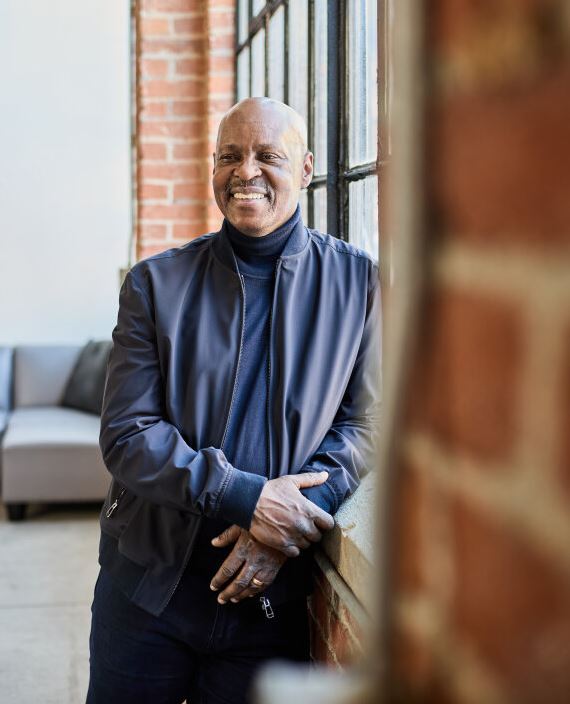
Mark Saunders has made safety on the TTC a key pillar of his election platform, which focuses on his role as former Toronto police chief.
If elected, Saunders said he would increase the number of special constables by at least 200. His plan involves deploying them across stations and focusing on their visibility – taking special constables out of cars and onto platforms – to reassure the public.
Saunders also promised to enhance mental health training for TTC special constables and provide new equipment, including body-worn cameras.
The former police chief has promised to create a new assist button that would be rolled out on streetcars and buses to “identify emergency incidents.” He also plans to create minimum lighting standards at streetcar and bus stops to enhance safety and increase enforcement of existing anti-loitering bylaws.
If elected, Saunders said he would cancel an outstanding request from the City of Toronto for the federal government to decriminalize person drug use. He said he would not continue to expansion of supervised drug consumption sites and “focus more on treatment” for people struggling with drug addiction.
Saunders also promised he would advocate for stricter bail conditions for violent and repeat criminal offenders.
He said he would hire 400 new police officers, if elected.
If elected, Saunders has promised to create a wrap-around services strategy to connect people with Toronto Public Health as part of his plan to reduce tent encampments in the city. He promised to provide space in unused or underused city buildings to non-profits to provide addiction treatment and expand their services.
Saunders also said he would negotiate with developers to include supportive units in new rental buildings to be included as other spaces non-profits could work from.
He promised to advocate to the province to waive tuition for the next three years for all Toronto students who are studying qualifications related to mental health, addiction or housing support.
If elected, Saunders promised to increase affordability for businesses by waiving all fees for those taking part in the 2023 CafeTO program. He said he would simplify the application process in the future.
Saunders has proposed a series of housing reforms to increase construction. He said he would waive property tax on future affordable housing developments and “explore” other tax incentives that could boost the supply of affordable housing.
Developers would also be allowed to add one to two more stories to rental buildings or condo buildings than already approved under Saunders’ plan.
If elected, Saunders said he would offer free TTC rides to people aged 65 and older at off-peak time, between 10 a.m. and 3 p.m. on Mondays. He would then ask the province to provide funds to “further expand” the initiative.
He said he would also offer the option to have buses stop on demand for seniors during off-peak to get people closer to their homes.
If elected, Saunders promised to lobby the provincial and federal governments to push through an extension for Line 4 to the Scarborough subway and west to the Vaughan portion of Line 1. He said he would order a planning assessment for the Ontario Line to extend north to Sheppard Avenue East.
Saunders also announced plans to triple fines for cars and trucks that stop in prohibited areas, especially during peak times. He said he would create delivery truck zones on side streets to stop them from blocking main roads.
Construction blocking lanes in downtown Toronto would be prohibited if Saunders is elected. He promised he would require all downtown construction to work double shifts through the summer to speed up projects. Saunders said he would apply the same double-shift construction policy to construction of the Ontario Line.
If elected, Saunders said he would add 200 parking wardens to work with parking enforcement on priority rush hour chokepoints and to target people blocking the box by entering intersections late.
He also promised to scrap or cancel plans for bike lanes on some streets, including University Avenue, Yonge Street and Bloor Street West into Etobicoke to “ease congestion.” As mayor, Saunders would suspend all bike lane expansion until a new approach is developed, including increased consultation with residents and businesses.
If elected, Saunders would also re-open King Street to all vehicle traffic. He said he would limit weekend closures of main roads.
Brad Bradford
If elected, Brad Bradford has promised to install platform edge doors at TTC subway stations. He has also pledged to increase security and safety patrols across the transit network.
Bradford said he would create a new municipal agency specifically to help with people in mental distress.
As part of the crime and safety arm of his campaign, Bradford has promised to create a specific bail compliance unit within the Toronto Police Service. He said that unit would be made of 68 new police officers tasked specifically with making sure people are in compliance with their bail conditions and to deter them from breaking them.
If elected, Bradford said his focus would be streamlining housing approvals to increase affordability. He said he would make changes based on “empowering” the city’s development and growth staff to increase housing, while reducing red tape and “over-consultation.”
Bradford also promised more missing middle housing, touting his record as the chair of the city’s planning committee and training as an urban planner.
The mayoral hopeful also said he would unlock city land that was being under used to build housing. Projects on that land would be required to include at least 33 per cent affordable units.
If elected, Bradford promised to offer as-of-right conversions for office spaces if the building isn’t going to get any bigger. Essentially, this would allow offices to be converted into housing. Bradford said he would waive the requirement to replace office space foot-for-foot on condition 20 per cent of replacement developments were affordable housing.
Bradford also pledged to allow live-work units on all main streets in Toronto.
If elected, Brad Bradford has promised to keep property tax increases at or below the rate of inflation.
If elected, Bradford has promised to make sure there is cell service throughout the Toronto subway system.
Bradford has also promised to appoint a Congestion Relief Commission who will be mandated to “end all traffic chaos” and coordinate potential issues such as construction. If he wins the election, he plans to redeploy 200 parking officers to “unclog intersections.”
The mayoral candidate also promised to allow construction on the Gardiner East project 24 hours per day, seven days per week to speed up its construction.
Bradford pitched a change to the long-term Ontario Line construction plans. If elected, he would divert TTC Queen streetcars onto King Street via Spadina Avenue and Church Street instead of along Adelaide and Richmond Street for the five-year construction closure.
He also pledged to install 200 new speed cameras in Toronto.
Mitzie Hunter
If elected, Mitzie Hunter promised she would pair social workers and transit officers to assist people in mental distress. She also said she would work with Toronto police to get officers to patrol inside and outside subway stations to offer a more visible presence.
Hunter also said she would launch a community ambassador program on transit. “Their first job will be to do a safety blitz which would see them walk about their local transit stations and conduct a safety audit,” her campaign said.
She said she would install sliding doors on Toronto subway platforms.
If elected, Hunter said she would open warming and cooling centres throughout the year in Toronto. She also promised to add 400 new shelter beds to the system.
She also said she would double capacity and support for street outreach programs, and bring in dedicated teams focusing on young people, Indigenous people and racialized youth.
Library service would expand to run from 11 a.m. to 5 p.m. on Sundays if Hunter wins the election, she promised. This would include expanding library outreach and housing programs as well as youth hubs.
Hunter also said she would build 2,000 new supportive homes with funding supported included for those residents. She said she would also expand the eviction prevention program run by city hall.
If elected, Hunter has promised a focus on mental health. She said she would hire a chief mental health officer for the city and focus on mental health strategies, including relaunching Mental Health Support Strategy and creating long-term Mental Health and Addiction Strategy.
Hunter also said she would create a technology fund to modernize and integrate mental health programs and increase community service partnership fund to fund non-profits in the space.
On business affordability, Hunter promised to refund permit fees for CafeTO 2023 and eliminate application fees going forward.
Hunter has said she would boost housing affordability, if she is elected. She said she would unlock more city land for housing by making housing part of city-led construction projects such as libraries, communities centers and Green P parking facilities.
Hunter promised to create a Toronto Affordable Housing Corporation, responsible for development of 10 to 20 storey buildings on public land. She is targeting 23,000 units across six years as part of the project and would offer local rent control and new parks in city housing projects.
If elected, Hunter said she would allow multiplexes to be built across the city and develop standardized designs for laneways and gardens suites. Hunter promised to allow eight storey buildings on 1,200 kilometres of major street and low-interest loans to renovate homes into fourplexes.
Hunter has also pitched staffing changes at city hall: a tenant advocate to work within the legal department, 15 more city planners and 15 more building inspectors.
If elected, Hunter said she would exempt all creative facilities and art sector small businesses from property tax increases. She also promised 25 cents of every dollar collected in the Municipal Accommodation Tax to go to arts and culture.
Hunter said seniors with income under $80,000 per year could eliminate or defer property taxes.
If elected, Mitzie Hunter has pledged to eliminate TTC and Wheel-Trans fares for seniors.
She has also promised to reverse the 2023 fare hike introduced this year and to reverse service cuts brought in as part of the same budget. Hunter has promised that the subway will open at 5:30 a.m. from Monday to Saturday under her potential mayoralty.
Hunter, who represented Scarborough in the Ontario legislature, said she would extend the Eglinton Crosstown LRT east to the University of Toronto Scarborough campus. She also promised to ensure the Waterfront East LRT is built.
She has said she will champion the North York Subway extension connecting Line 4 (Sheppard) to the Scarborough subway line and expand it eastwards to the Vaughan-University portion of Line 1.
Hunter said she would increase the snow clearing budget by more than 10 per cent, including spending on more modern equipment. She similarly promised to double the pothole repair budget and purchase more modern tools.
If elected, Hunter also said she would increase the Vision Zero budget and create new community safety zones, crosswalks, sidewalks and hire more crossing guards. She said she would empower an Office of Traffic Management to resolve bottlenecks.
Anthony Furey

If elected, Furey said he would authorize and train TTC special constables to carry tasers and upgrade police radios to work across the subway system. He also promised to recruit more mental-health workers to “augment police expertise when needed.”
Furey also said he would send security and or mental-health workers to the scene of non-violent crimes, if elected.
The former newspaper columnist promised to stop plans for new safe injection sites in Toronto and reallocate those resources to drug addiction treatment sites. He also said he would “partner with the province” to offer more voluntary treatment options.
Furey said, if elected, he would look to listen particularly to religious social service providers who he said do not want to host addiction services on their premises.
He said he would remove tent encampments from all parks in Toronto. Furey promised to increase Toronto police and private security patrols of parks and trails and require staff at safe injection sites to do regular sweeps of parks near their facilities.
Furey also said he would add 500 officers to the Toronto Police Service. If elected, he promised to increase resources for 911 calls and ensure 90 per cent of calls are answered within 15 seconds.
If elected mayor, Furey said he would not appoint any councillors who support police defunding to be deputy mayors or executive committee.
Furey said he would not increase – or add new – taxes in Toronto, if elected mayor. He also promised to eliminate the land transfer tax for first-time home buyers. Furey said he would eventually phase it out entirely by reducing it by 25 per cent annually.
If elected, Furey said he would push to increase industrial, supply-chain jobs in Toronto. That would include a plan with Toronto Hydro to lower rates for industrial clients.
To increase the housing supply, Furey said he would guarantee housing approvals within six months for developers — or have them auto-approved.
For renters, he said he would end the Rent Safe program and create a trusted landlord database.
Furey said he would order a top-to-bottom audit of City Hall finances to ensure taxpayer money is being spent wisely. He also promised a hiring freeze on non-core services staff.
If elected, he also said he would look at funding agreements with Toronto Pearson Airport and ask the federal government for a gas tax rebate.
If elected, Furey said he would end plans to expand dedicated bike lanes throughout the city and remove them from University Avenue. He also said he would “revisit” plans for lanes on Yonge Street and “other major thoroughfares.”
Furey also said he would reassess plans for some vehicle lanes to be turned into transit lanes and advocate against tolls on the Gardiner Expressway and Don Valley Parkway
The mayoral candidate is also promising to sue provincial transit agency Metrolinx over the much-delayed Eglinton Crosstown LRT. He said he will demand $1 billion and will give some of the proceeds to local businesses.
Furey promised to finish the Ontario Line and the Eglinton Crosstown LRT before starting new transit projects.

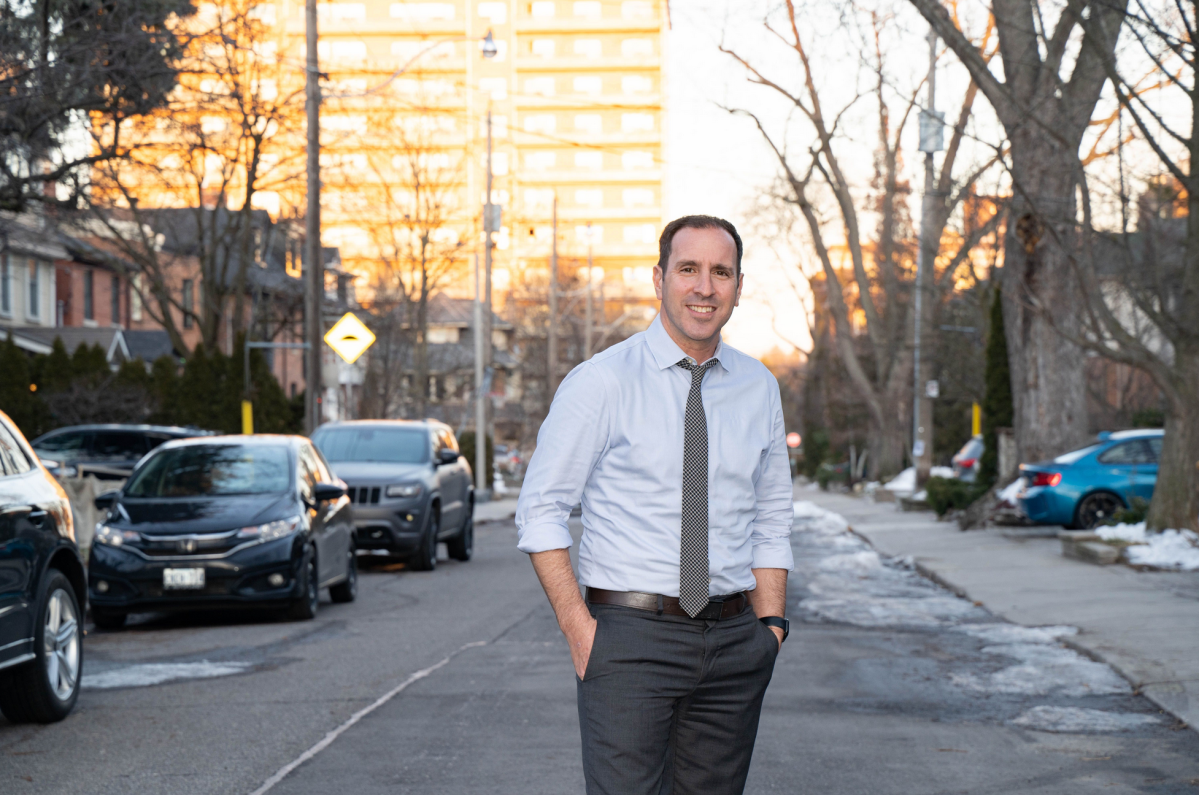
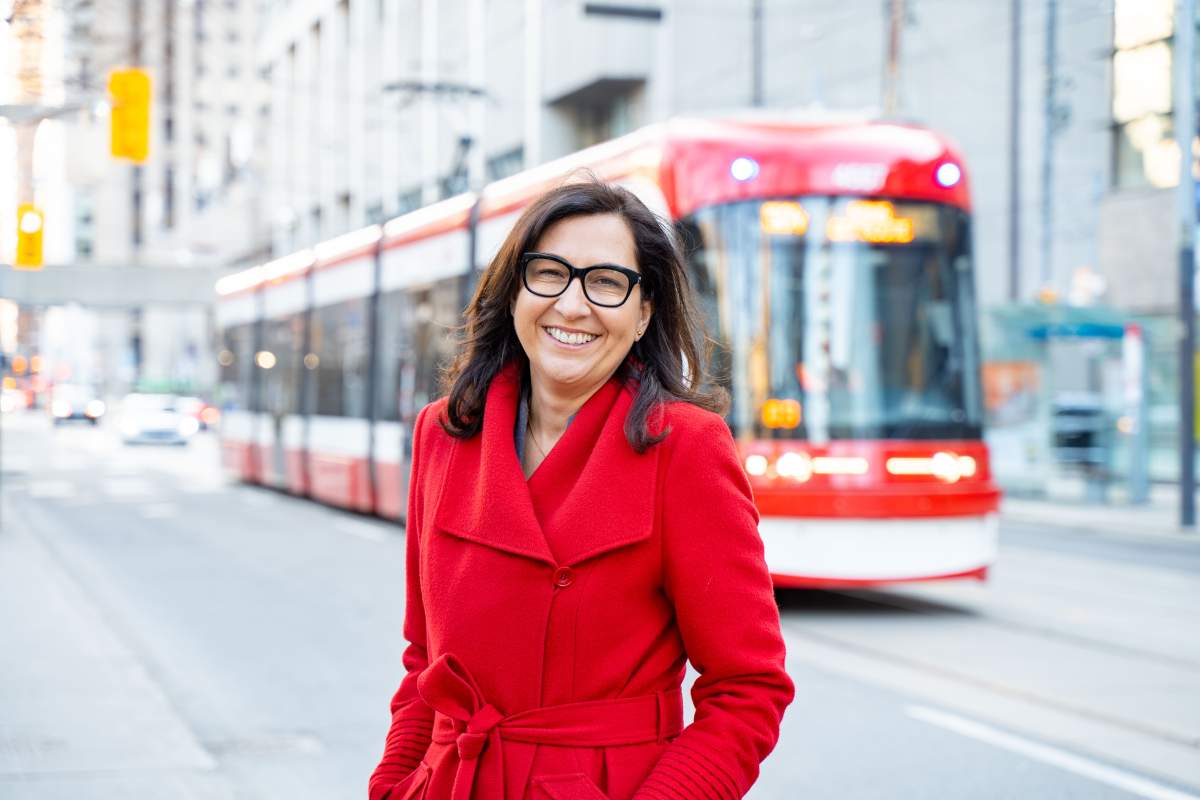
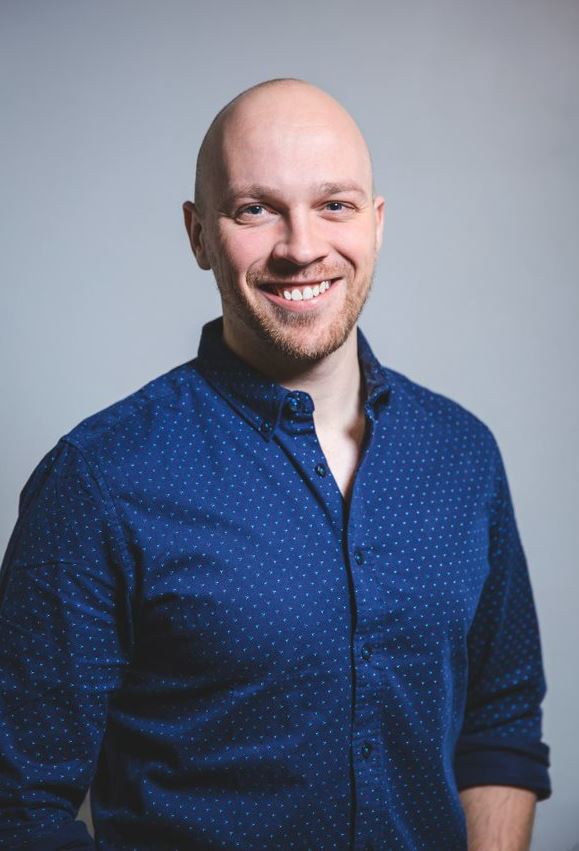
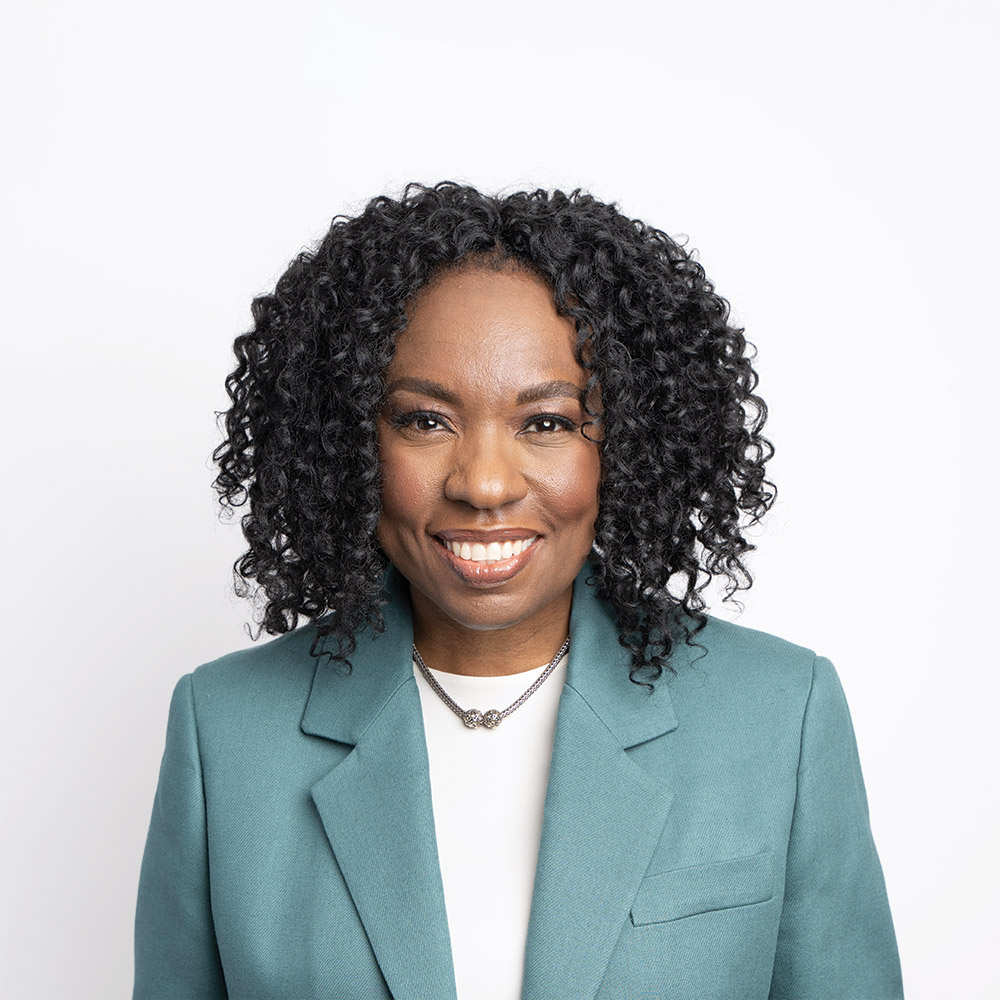
Comments
Want to discuss? Please read our Commenting Policy first.